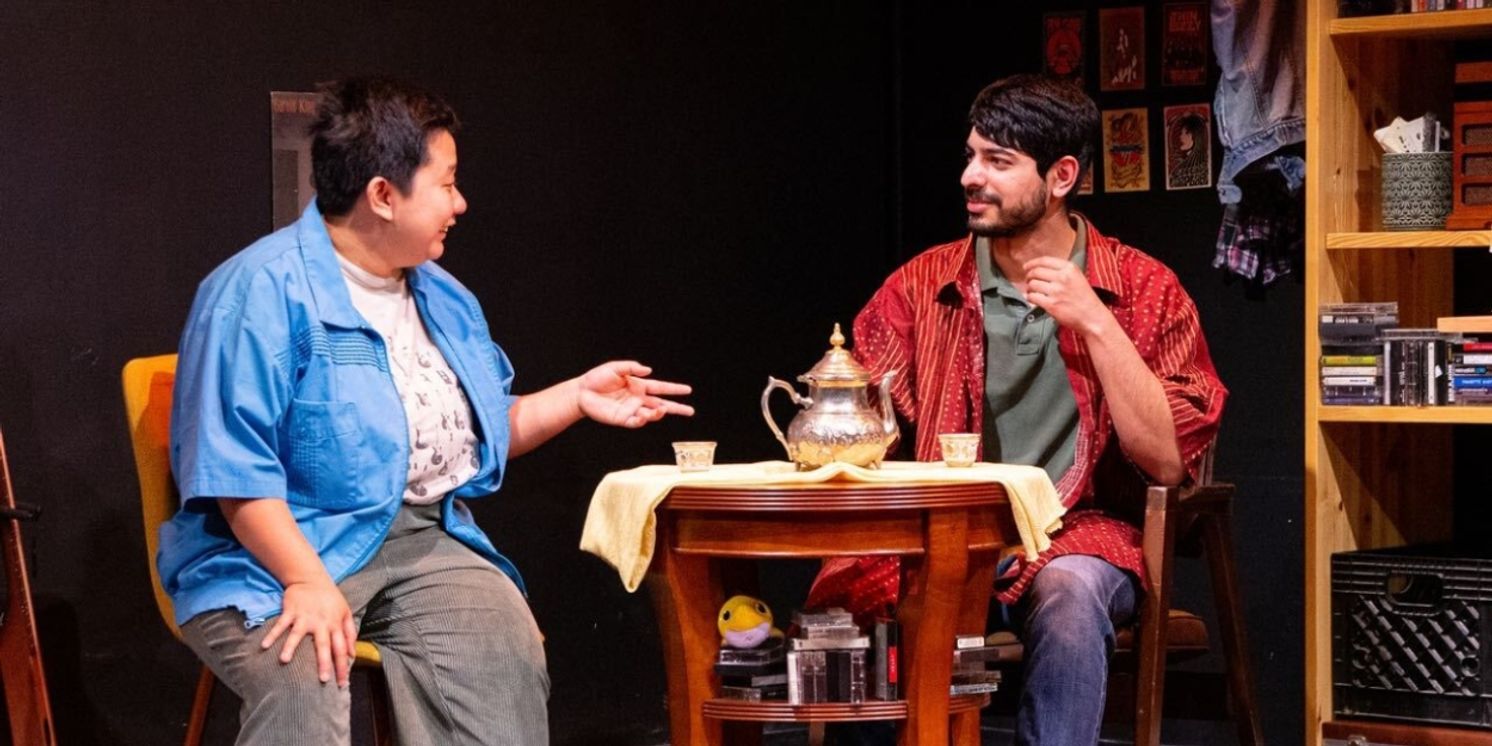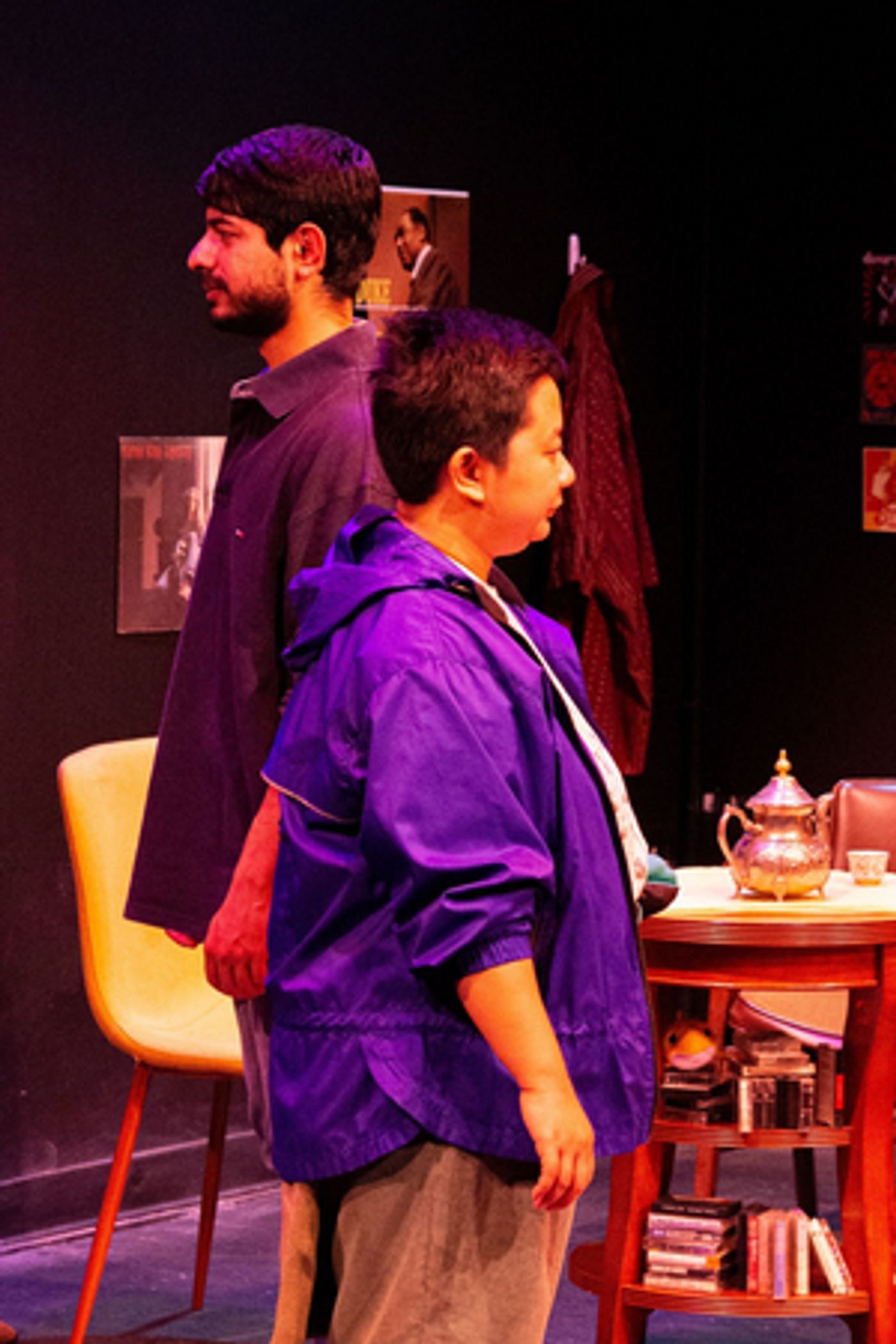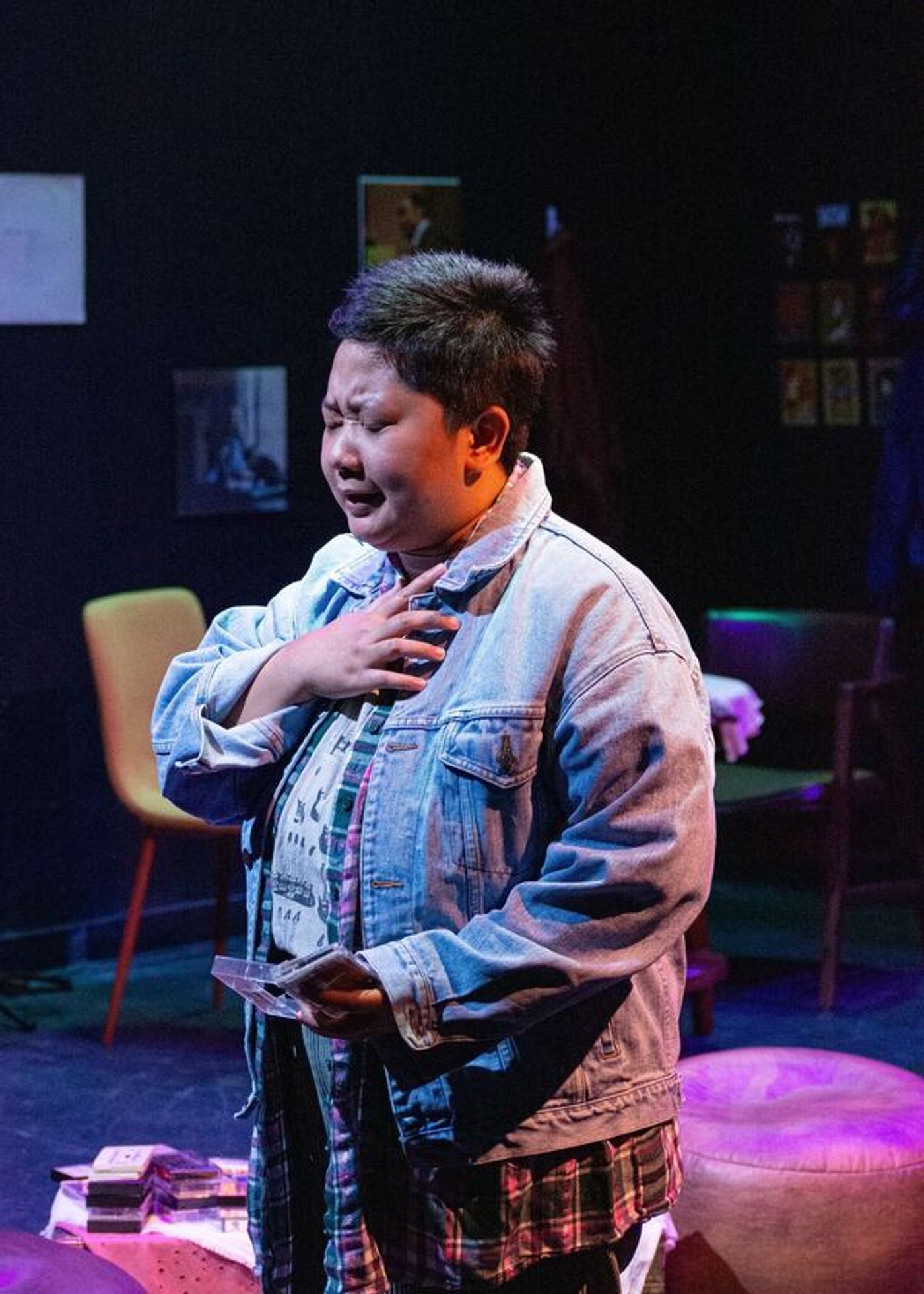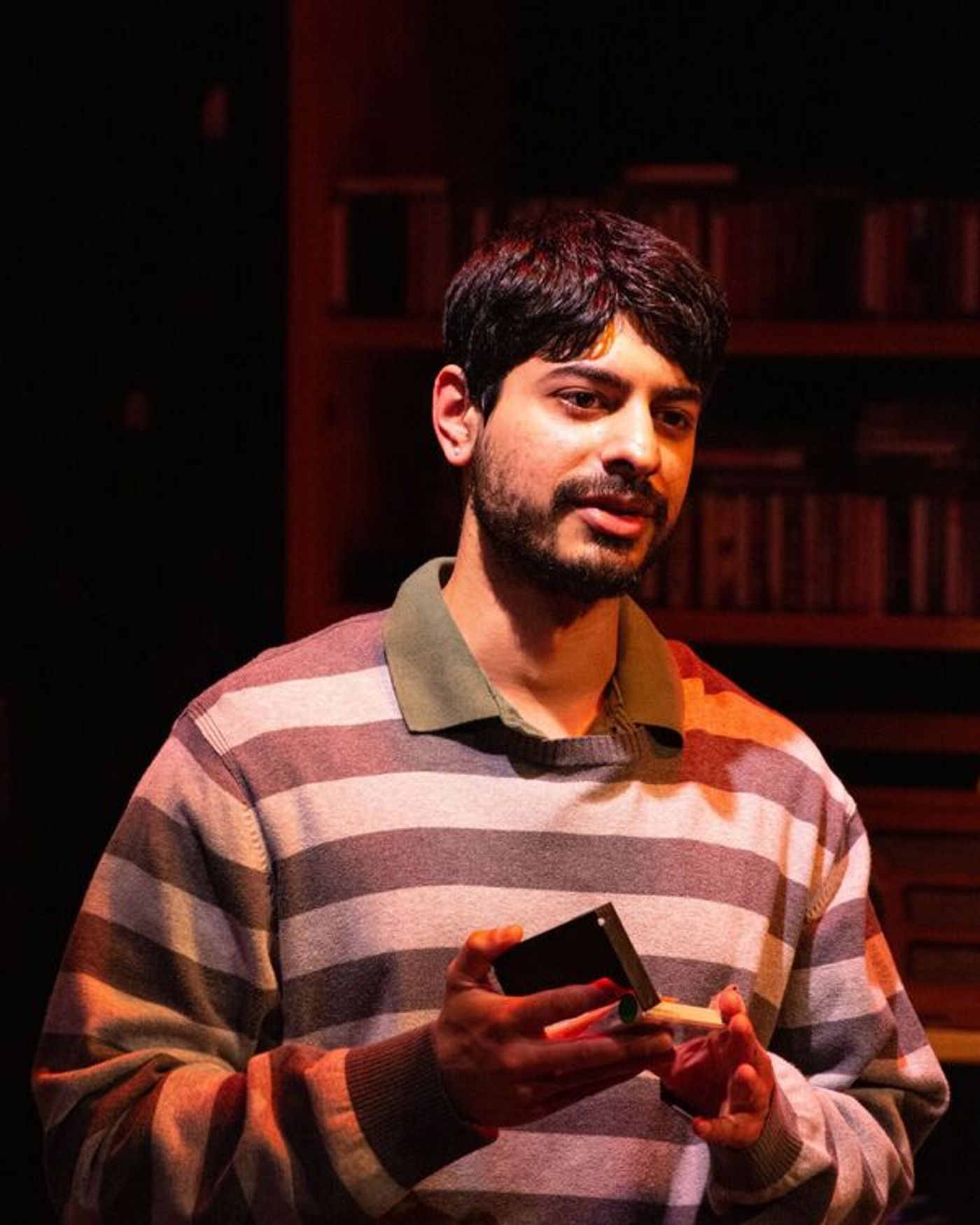Review: THE CASSETTE SHOP at Theatre Prometheus
World premiere shaped from the personal experiences of area asylum seekers


Photo credit: Barbara Fluegeman
Fashioned from the real words and personal experiences of DC-area asylum seekers, Theatre Prometheus's new work, The Cassette Shop, explores the magical sensory connection of music to link us with others and transport us through time.
Cassette shop owner Alé (Shan Khan) left his family farm and the danger of his homeland to build a safer life alongside his wife and children in the United States. He has been mired in the bureaucratic paperwork of U.S. immigration for six years. His guitar is his solace. Into the shop walks Luciar (Kartika Hanani), a fellow asylum-seeker. Though they were born half a world apart, they are connected by the same sense of being in limbo. Over time, they uncover their shared powerful and mystical connection to music.
The devised theater work was created in partnership with the local nonprofit AsylumWorks. The asylum seekers who shared their personal stories of fleeing violence and seeking to rebuild their lives in the DMV are credited collectively as the Storytellers along with playwright Asif Majid. The new play advances Theatre Prometheus's commitment to sharing stories that too often go untold and uplifting marginalized narratives.
Despite the merit and significance of the experiences behind the production, The Cassette Shop falls short of its ambitions.

Pacing was a significant problem. While the meandering script could use a trim, it was the sluggish transitions that should have been an easy fix for director Lauren Patton Villegas. Entrances needed to be crisp and immediate and there was little reason to have so many small costume changes that ate up time. But two separate scenes of Alé and Luciar silently picking up cassettes and their magical responses weren't needed since their powers were already established. Perhaps I was overly sensitive to time since the theatre doors weren't opened until two minutes before the stated curtain time and, with no explanation, the show began about ten minutes late - which is highly unusual and unprofessional.
The playwright's choice to keep the poem "First" in Luciar's Indonesian native tongue was a lost opportunity to establish important aspects of Luciar's character - her joy of discovery, the reasons she stopped writing, and the danger of being a lesbian in a land of turmoil, false accusations and corruption. The poem is translated in English in the playbill, but it is listed among other storytelling notes and the audience doesn't understand the significance of the poem in the program until after the scene.

In a cast of just two people there's so much expected of the pair to propel the action, to draw us in, to make us feel. Shan Khan as Alé is up to the task. He is compelling and gives dignity and pathos to the music-loving asylum seeker. The story of Alé's first date with his wife is sweet, tender and funny. His frustration of his stalled legal case is palpable. His simple statement, "my joy is gone," is devastating.
It was harder to connect with Kartika Hanani as Luciar. One issue is that Hanani is so soft-spoken key words would frequently be lost even in the small space of approximately 40 seats; when there was musical underscoring the problem was more pronounced.
The production team uses the Anacostia Arts Center's small, flexible black box theatre to create moments of intimacy and times of trapped claustrophobia. Nitsan Scharf's projections over two walls are a memorable production element, helping the audience shift among changing musical and emotional themes and enhancing the magical elements of the production. Kaitlyn E M Sapp's sound design weaves world music throughout - sometimes in the foreground, sometimes quietly underlaying the action. The set and props designed by Dom Ocampo - from the vinyl records and band postcards on the wall to milkcrates of tapes - create a timeless world familiar to any of us who have flipped through dusty cardboard boxes of tapes or records searching for an elusive title. Hailey LaRoe's lighting design supports this world, and the orange neon sign announcing Alé's Cassette Shop is a highlight. Costume designer Taylor Gray Burke uses basic street clothes with shifts in coats and sweaters to indicate the passage of time.
The Cassette Shop has a fringe aesthetic and a workshop feel - a little rough, experimental, lean and a bit unseasoned.
New work gains so much from audience feedback - premieres can be surprising and challenging as the words move from page to stage. Theater at its best opens audiences to new experiences and promotes empathy and understanding - it is clear this is the intent of The Cassette Shop. While there is great substance and potential, the production seems unready for a full professional production.
Runtime: 80 minutes with no intermission
THE CASSETTE SHOP by Asif Majid and devised with the Storytellers runs through May 20 with performances on Thursday, Friday, Saturday and Sunday at 7:30. The production is at the Anacostia Arts Center, 1231 Good Hope Road SE, Washington, DC 20020. For tickets, Covid protocols and more information, see the Theatre Prometheus website.
Reader Reviews
Videos

